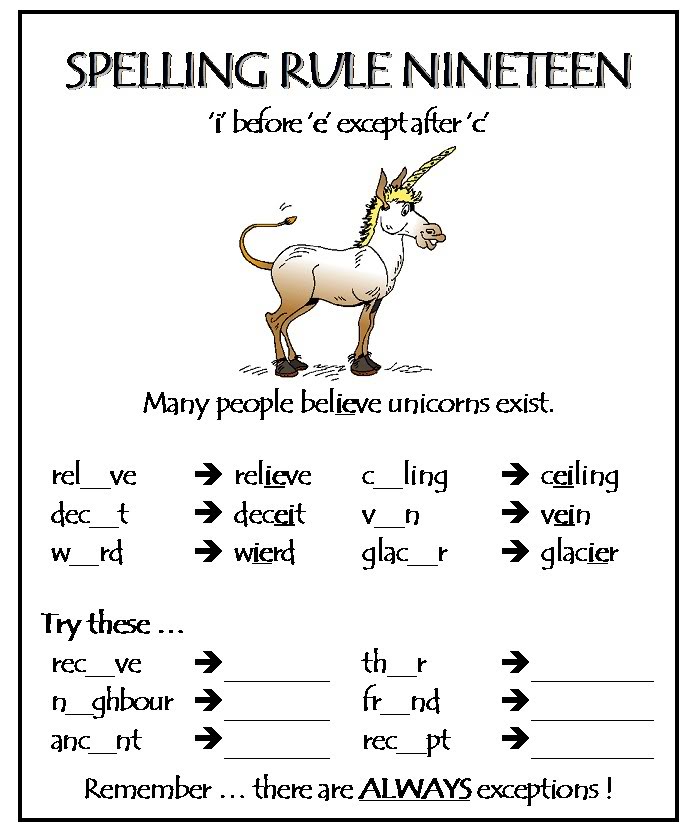
If you have come here randomly or suddenly, first I'm going to repeat a section from my spelling page (linked way below), and then ask you a question.
Daniel Midgley: I have to show this to an ageing atheist sheik. He's eighty.

"Weird" is weird.
"sounded as 'a'"
as in neighbor
and weigh,
neigh,
inveigh
"shunt" words:
ancient
coefficient
deficient
proficient
sufficient
efficient
"science" and lots of words ending in science
and two common ones that can also end in "cient":
omniscience and omniscient,
prescience and prescient
"Keith" (names in general)
neice
either
neither
protein
heinous
Another example:

Did you come up with two numbers? Divide nearly-1000 into two piles.
Think about how you're deciding this. 🙂
In reference to The Elements of Eloquence: How to Turn the Perfect English Phrase, by Mark Forsyth:
Learning rules doesn't always work, however. Forsyth also takes issue with the rules we think we know, but which don't actually hold true. In a lecture about grammar, he dismantles the commonly held English spelling mantra "I before E except after C." It's used to help people remember how to spell words like "piece," but, Forsyth says, there are only 44 words that follow the rule, and 923 that don't. His prime examples? "Their," "being," and "eight."
(From an article about the order of adjectives, called How non-English speakers are taught this crazy English grammar rule you know but have never heard of)
Those three "prime examples" are explained two ways—"sounded as "a" as in "neighbor" and "weigh."
Their and eight have an "a" sound at least initially (more in some accents and dialects than others).
"Being" is a form of the verb "to be." Anyone using that word should see that it's "be" and then -ing. They wouldn't rearrange any letters in other verbs they added "ing" to. So I don't think it's a good example (of a bad example)..
Still, I would have guessed it more like 600 rule, 400 exception. I had never thought of whether they had been counted before. Fun!!
44 rules followers to 923 "exceptions." 🙂
 Writing
Writing
 Etymology
Etymology